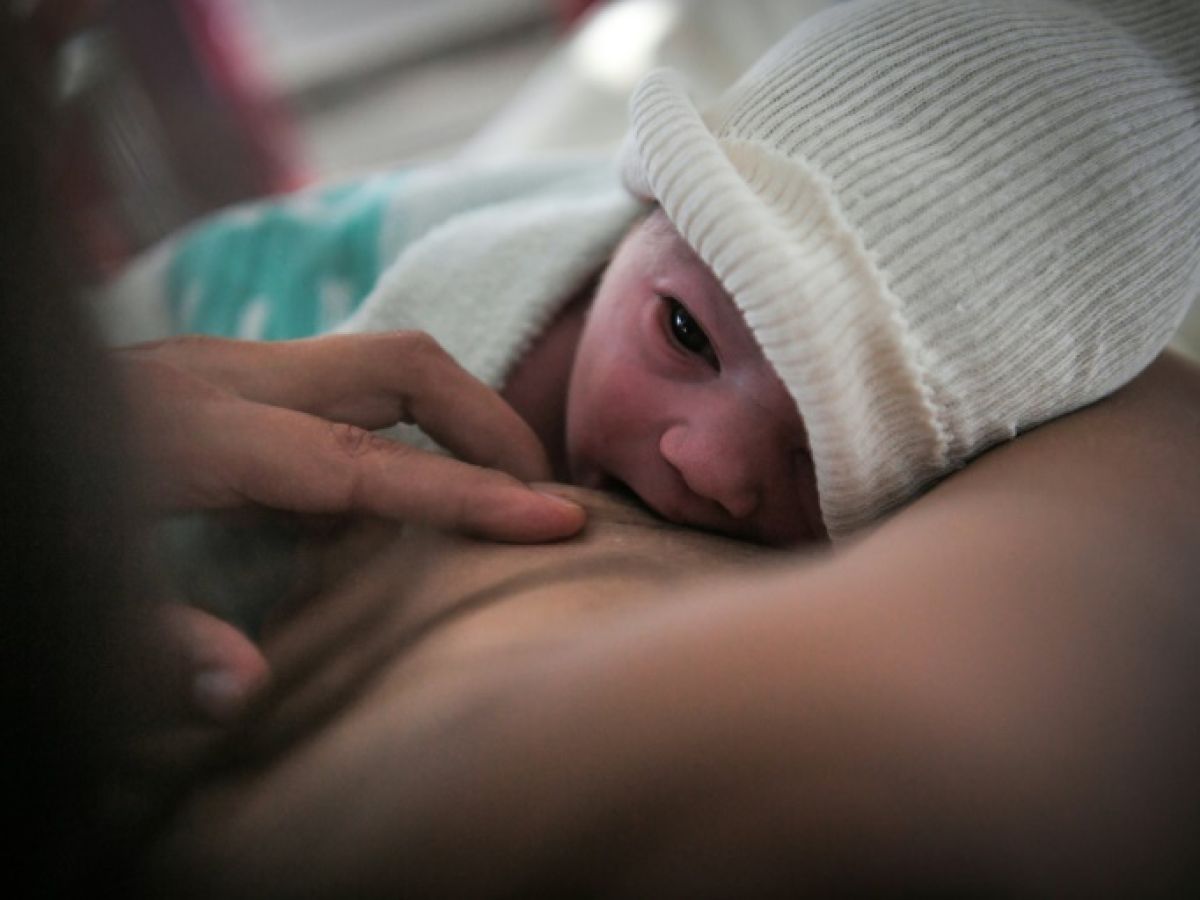To better protect babies from the resurgence of whooping cough, all people in close contact with an infant should receive an earlier booster shot and pregnant women should be vaccinated more frequently, the High Health Authority recommended on Monday.
Whooping cough, a highly contagious viral disease, is often benign but can cause serious respiratory and neurological complications, sometimes fatal in babies.
In a "worrying epidemic context", the High Authority for Health (HAS) therefore recommends that "any person in close contact with a newborn and/or infant under 6 months in a family or professional setting receives a booster, if their last whooping cough vaccine dates back more than 5 years".
In addition to health and early childhood professionals, this concerns those around the newborn (parents, siblings, grandparents, people in close contact, etc.), unless the mother was vaccinated at least one month before giving birth.
"Studies suggest that vaccine efficacy would fade rapidly from 5 years after the last dose, becoming insufficient to guarantee protection against infection," argues the HAS.
Since the beginning of 2024, France has seen "a sharp increase in the number of contaminations" by this infection and "at least 17 deaths, including 12 in infants aged 2 months and under", the authority recalls in a press release.
Given this number of deaths "already higher than that observed in France during the last epidemic peak in 2017 but also the current number in neighboring countries such as the United Kingdom", "we must tighten the vaccination mesh to protect infants as effectively as possible", Anne-Laure Cremieux, member of the HAS technical vaccination commission, told AFP.
The recommendations aim firstly to reduce the risk of severe whooping cough in newborns and infants, who are too young to be protected by their own vaccination – mandatory at 2 and 4 months with a booster at 11 months.
– “Protect from birth” –
"We are seeing dramatic forms of whooping cough in this population of infants who have not yet been vaccinated, with hospitalizations in intensive care, and sometimes fatal outcomes," Philippe Sansonetti, professor emeritus at the Pasteur Institute and the Collège de France, deplored to AFP at the end of June, judging that "it is not acceptable to see this again in France today."

He also pointed out "a real problem of revaccination" of the entourage, because the new generation of vaccine is "extremely well tolerated but does not have the same efficacy and duration of protection" as the old one, with very long immune memory but significant side effects.
Vaccination of pregnant women, from the second trimester of pregnancy and at the latest one month before delivery, recommended since 2022 in France, remains "the most effective measure to protect the infant from birth thanks to the transplacental transfer of antibodies", underlines the HAS, in unison with specialists.
And "its safety has been demonstrated, with twelve years of hindsight in countries like England," adds infectiologist Anne-Laure Cremieux.
But "this measure is still insufficiently applied in France," points out the health authority.
In the absence of vaccination during pregnancy, it is important that the young mother does so before leaving the maternity ward, adds the HAS.
It is also important "not to delay the primary vaccination of infants as soon as they are old enough to be vaccinated, from 2 months - including if the mother was vaccinated during her pregnancy", notes Anne-Laure Cremieux.
Vaccination against whooping cough is one of the mandatory infant vaccinations in France. In addition to boosters at 6 years old and then between 11 and 13 years old, another is currently planned at 25 years old, then at any age for adults planning to have children or in close contact with babies.
The HAS will propose, "in a second phase and outside of the emergency situation, an update of the vaccination strategy against whooping cough in light of the new data available."

